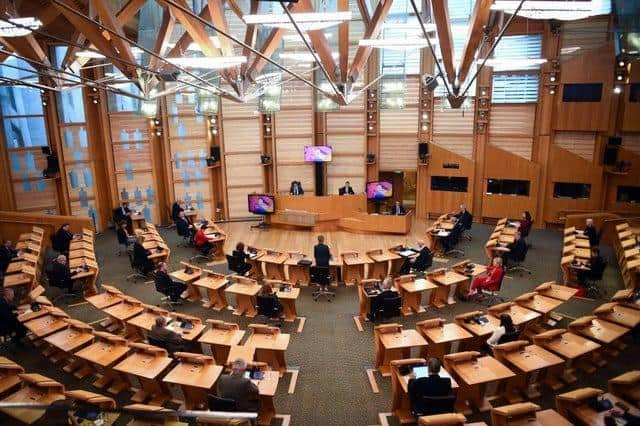Scottish Parliament election 2021: ‘No reason it can’t go ahead’, says Nicola Sturgeon
Speaking on the BBC’s Good Morning Scotland radio programme on Tuesday, Ms Sturgeon said it was “really important” that the democratic process continues during the Covid-19 pandemic.
In December, MSPs passed legislation which contains contingency options for the election.
Advertisement
Hide AdAdvertisement
Hide AdIt could allow voting to take place on more than one day, though ministers do not expect this power will have to be used.


The First Minister told GMS: “I see no reason at this stage why the election wouldn’t go ahead.
“I think everybody would agree it’s really important that our democratic processes continue and that elections happen.
“There have been elections in many other countries over the course of the pandemic.”
She added that any changes will be agreed on a cross-party basis with the Presiding Officer.
MSPs unanimously passed the Scottish General Election (Coronavirus) Bill on December 23.
As well as allowing for voting to take place on more than one day, the legislation also moves the deadline for postal vote applications forward to April 6.
A rise in postal voting is expected, with Parliamentary Business Minister Graeme Dey telling MSPs up to half of all ballots cast could be postal votes.
Advertisement
Hide AdAdvertisement
Hide AdThe Electoral Commission is due to send out an information leaflet to all voters in March, while all people in the shielding category are due to receive a letter from the chief medical officer in January setting out their options.
The First Minister’s comments came as the National Records of Scotland (NRS) published figures showing the electorate had reached record numbers last year.
As of March 2 2020, there were 4,227,700 people registered to vote at Scottish Parliament and local government elections.
Just over 145,000 EU citizens were registered to vote in Scottish Parliament and local government elections, 3.4% of the total electorate.
Sandy Taylor, head of electoral statistics at NRS, said: “These statistics reflect an upward trend over the last couple of years in the number of people on the electoral roll.
“The latest data will be used to inform the recently started review of UK parliamentary constituency boundaries.”
A message from the Editor:
Thank you for reading this article. We're more reliant on your support than ever as the shift in consumer habits brought about by coronavirus impacts our advertisers.
If you haven't already, please consider supporting our trusted, fact-checked journalism by taking out a digital subscription.
Comments
Want to join the conversation? Please or to comment on this article.